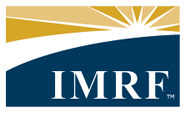Pension Protection Act of 2006
October 31, 2006
Revised December 11, 2006
Executive Summary
On August 17, 2006, the President signed the Pension Protection Act (PPA) of 2006 into law. Much of this new law focuses on private sector pensions. However, several provisions affect IMRF members (effective dates of the provisions differ from immediately to January 1, 2008):
- Members eligible to upgrade existing service can pay for the upgrade using rollovers from 457 and 403(b) deferred compensation plans and from traditional IRA accounts.
- Former police officers, firefighters and emergency medical personnel are not subject to the 10% penalty tax on member contribution refunds if the member was age 50 or older when the member stopped working for his or her IMRF employer.
- A retired or disabled public safety employee can elect to have up to $3,000 annually in health insurance or long term care insurance premiums deducted on a pre-tax basis from IMRF benefit payments.
- A beneficiary who is not the member’s spouse can avoid federal income tax withholding on a lump sum death benefit by rolling over the taxable portion into a traditional IRA.
- A member or member’s beneficiary will be allowed to roll over the taxable portion of a refund or lump sum death benefit into a Roth IRA.
On the following pages, you will find a summary of the provisions of PPA that impact IMRF members.
Using a rollover to pay the cost of upgrading existing service credit
Effective immediately, if a member is eligible to upgrade existing service, e.g., from Regular to SLEP or from Regular to ECO, he or she can pay for the upgrade using rollovers from 457 and 403(b) deferred compensation plans and from traditional IRA accounts. Previously, a member could not use a rollover to upgrade existing service.
If a member previously entered into a Tax-deferred Payroll Deduction agreement (TPDP) to pay for the service upgrade, that agreement remains in effect. The member may NOT stop the TPDP payments. However, if the member stops working for the IMRF employer, the TPDP agreement ends. The member can then use funds from a rollover to convert any remaining months of service.
Elimination of 10% early withdrawal penalty for certain public safety employees
Effective August 18, 2006, former police officers, firefighters and emergency medical personnel are not subject to the 10% penalty tax on member contribution refunds if the member was age 50 or older when the member stopped working for his or her IMRF employer.
Retired or disabled public safety employees may have health and long term care insurance premiums deducted from their benefit payments on a pre-tax basis
Effective January 1, 2007, a retired or disabled public safety employee can elect to have health insurance or long term care insurance premiums deducted on a pre-tax basis from his or her pension or disability payments. The amount deducted must be paid to the insurance provider, either directly or through the former employer.
In order to take advantage of this provision of the PPA, the member must have held a public safety position when he or she:
- Terminated IMRF participation for retirement or
- Became totally and permanently disabled and is receiving IMRF disability benefits.
Public safety employees include the following:
- An individual involved in crime and juvenile delinquency control or reduction, or enforcement of the criminal laws (including juvenile delinquency), including, but not limited to police, corrections, probation, parole, truant officers, and judicial officers;
- Professional firefighters
- Officially recognized or designated public employee members of a rescue squad or ambulance crew
- Officially recognized or designated members of a legally organized volunteer fire department
- Officially recognized or designated chaplains of volunteer fire departments, fire departments, and police departments
A maximum of $3,000 annually can be deducted on a pre-tax basis. Once the $3,000 maximum is reached in a calendar year, IMRF will then deduct the remaining premiums for that year on an after-tax basis.
The health insurance or long-term care insurance coverage can include the member, spouse, and dependents. However, this pre-tax deduction is available only to the member. It is not available to surviving spouses.
Rollovers allowed for a beneficiary who is not a spouse
Effective January 1, 2007, a beneficiary who is not the member’s spouse can avoid federal income tax withholding on a lump sum death benefit by rolling over the taxable portion of the benefit into a traditional IRA (special rules apply to the IRA that accepts the rollover). Previously, this rollover provision was available only to a member’s spouse. Rollovers to Roth IRAs Effective January 1, 2008, a member or member’s beneficiary will be allowed to roll over the taxable portion of a benefit into a Roth IRA. Currently, the taxable portion of a member contribution refund or a lump sum death benefit cannot be rolled over into a Roth IRA. (A rollover into a Roth IRA is taxable to the member or beneficiary in the year the rollover is made.)
Questions?
We will advise members of these changes through our Fundamentals newsletters. We are also in the process of revising our forms and publications to reflect this new law.
If you have any questions regarding the PPA of 2006 and its impact on IMRF members, please call an IMRF Member Services Representative at 1-800-ASK-IMRF (1-800-275-4673), Monday through Friday, 7:30 a.m. to 5:30 p.m.

